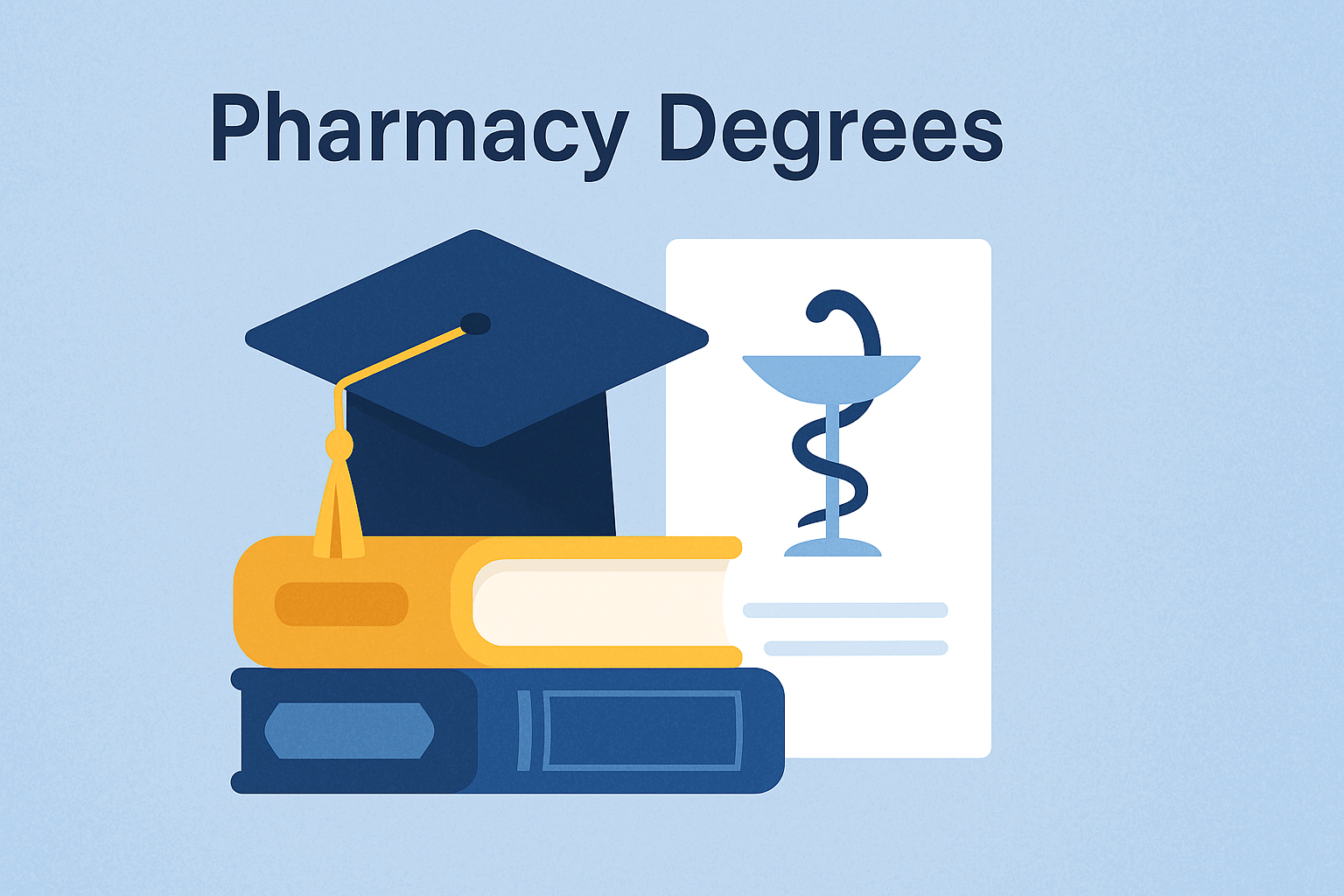Crossing the realm of medicine and chemistry with patient care, this is where the pharmacist-who-knows-what-best-improves-lives comes in. Such a difference this pharmacy degree could make! With a burgeoning demand for healthcare workers worldwide, pharmacists are now gaining ground as major factors for patient well-being and effective functioning of the healthcare systems. This article will take you through every aspect of pharmacy degrees-from types and advantages to success tips and future trends.
Importance of Pharmacy Degrees
Far from dispensing medications, pharmacists are experts in the use of drugs, advising prescribers, counseling patients, and assuring drug safety and efficacy. Chronic illnesses are increasing, and with a global aging population, the need for trained pharmacists is more evident than ever.
The Bureau of Labor Statistics for the United States predicts more than 13000 new pharmacy jobs will be created annually until 2031. Besides the assurance of engaging in a profession, pharmacy degrees will also pave the way for a wide variety of opportunities in clinical research, pharmacogenomics, and public health, among others.
Key Advantages of Obtaining a Degree in Pharmacy
- Career Safety: There is a constant demand for pharmacists in hospitals, clinics, retail stores, and pharmaceutical companies.
- Good Salary: The average salary of a pharmacist in the United States is above $128,000 a year.
- Versatile Career Types: Involvement in academia, research, policy, and entrepreneurship.
- Globally Accepted: A pharmacy degree is recognized worldwide, allowing entry into international practice (with licensure) opportunities.
- Patient Focus: Making a real difference through safe medication guidance.
How to Become a Pharmacist: Step-By-Step Guide
1. Understand the Educational Pathways
- Pre-Pharmacy: The basic undergraduate courses include biology, chemistry, and mathematics.
- Doctor of Pharmacy (Pharm.D.): The primary degree needed by individuals practicing as pharmacists.
- Advanced Degrees: Either an M.S. or a Ph.D. in pharmaceutical sciences for research-oriented careers.
2. Choose the Best School
Seek programs accredited by the Accreditation Council for Pharmacy Education (ACPE).
3. Get Experience
Work experience through internships, externships, or pharmacy tech work would help build practical skills.
4. Take Licensure Exams
You are eligible to be a licensed pharmacist after passing the NAPLEX and law examinations specific to your state.
5. Optional Specialization
Residencies, fellowships, or certifications can be pursued in areas such as oncology, cardiology, or infectious diseases.
This is an actual, real-world case: Demotion from career to pharmacy.
Meet Sarah, a former pharmaceutical marketing executive who went on to pursue a Pharm.D. after witnessing the negative impact of medication errors on her father, who passed away as a result of it.
“I wanted to be someone who could prevent that for other families,” she says. Now, Sarah works in a hospital as an adviser to physicians regarding drug therapies and patient safety. Her story reveals how powerful personal relationships can be.
Some Actionable Tips and Advice
- Begin as early as possible: Set a solid foundation in science and math during high school.
- Pre-Pharms Join clubs: Gain peer support and early access into the field.
- Prepare for PCAT: Some schools require the Pharmacy College Admission Test.
- Soft Skills Development: Communication and empathy are also as essential as technical knowledge.
- Network: Attend pharmacy conferences and career fairs to meet industry leaders.
Common Mistakes to Avoid
- Underestimating Time Commitment: A Pharm.D. program typically takes 4 years post-undergrad.
- Ignoring Accreditation: You could jeopardize your licensure by pursuing a program that is not accredited.
- Skipping Financial Planning: Tuition can run high, so apply for scholarships and aid.
- Just Getting a Black Tie and Nothing More: I repeat, all standards are different among every state.
- Neglecting Clinical Skills: Experience in practice is the most crucial ingredient of success.
The Future Trends of Pharmacy Education
- Telepharmacy: Namely, virtual consultation and remote prescription issuance.
- AI Integration: That is, automated drug dispensing and data analysis.
- Personalized Medicine: Pharmacogenomics targeting therapy to genetic profiles.
- Expanded Roles: Pharmacists now vaccinate, screen, and manage chronic diseases.
- Global Collaboration: International programs and cross-border practice models.
Conclusion: Your Next Step Towards a Very Satisfying Career in the Healthcare Sector
The pharmacy degree is more than just an academic credential. It is a passport to an enriching, versatile, and gratifying career in one of the most important fields on Earth. If you are just graduating from high school or considering making a career switch, now is the perfect time to consider the far-reaching opportunities provided by pharmacy education.
Ready to take the first step? Get a list of accredited programs, get in touch with some pharmacy professionals, and begin the journey of a lifetime that will blend science, service, and purpose.
📅 Want more tips like this? Subscribe to our newsletter for updates on healthcare careers, degree programs, and insider insights!




